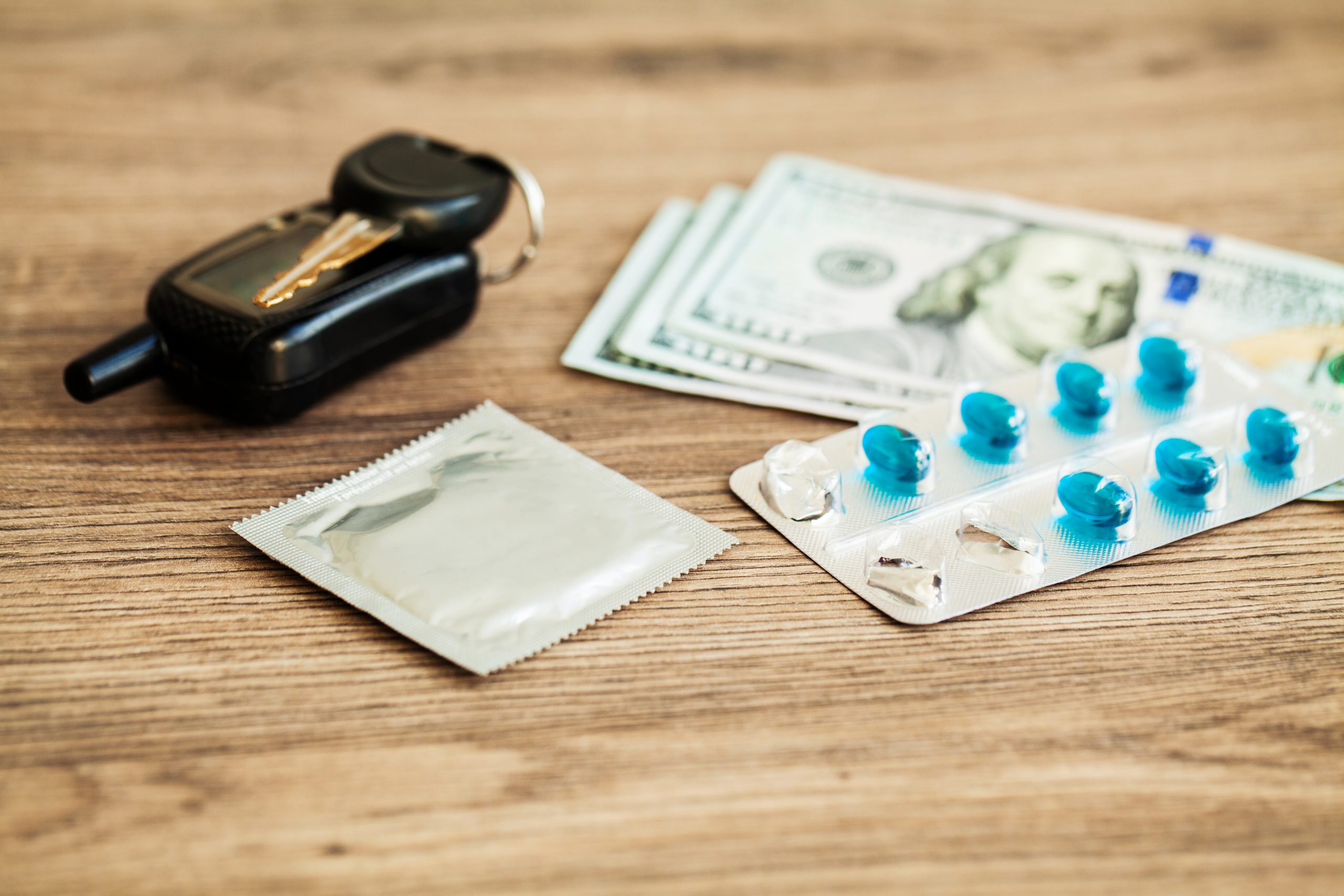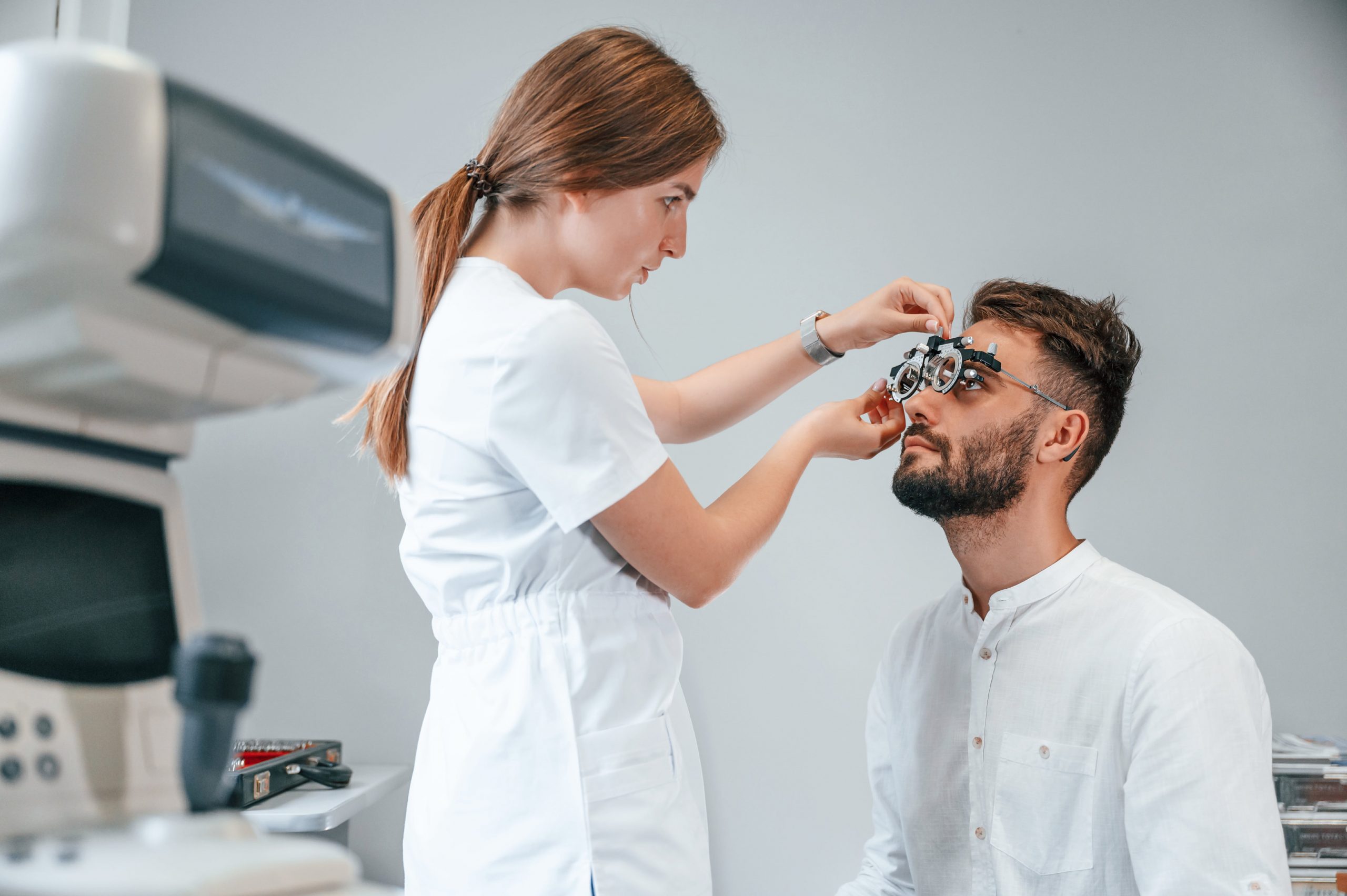Viagra is a prescription medication that helps men who have erectile dysfunction get and keep an erection. It does this by improving blood flow to the penis whenever you’re sexually aroused.
When you take Viagra, it blocks an enzyme called PDE5, which normally breaks down cyclic guanosine monophosphate (cGMP) in the penis. This allows cGMP to keep working longer than it would otherwise, allowing you to have an erection.
How Does It Work?
Viagra is a medicine used to treat erectile dysfunction, or impotence. It works by increasing blood flow to your penis, helping you get and keep an erection. It’s a type of PDE5 inhibitor, which means that it helps to stop the PDE5 enzyme from being released during an erection.
When a man is sexually aroused, a chemical called cGMP is released in the penis, which causes muscles at the base of the penis to constrict and give you an erection. But sometimes this process doesn’t work properly, either because of a physical problem (high blood pressure, hormone problems), or because of a psychological issue (depression, anxiety).
For most men with erectile dysfunction, this means that they can’t get an erection during sexual activity. This can be embarrassing or frustrating, and it can also affect their relationships with their partners.
If you’re experiencing erectile dysfunction, it’s important to get it treated as soon as possible. It’s best to talk to your doctor about a treatment plan, which can include taking Viagra.
Before you start using a medication, be sure to tell your doctor or pharmacist about all the medications you’re taking, including prescription and over-the-counter types. Also, describe any vitamins or supplements you take. These can also affect how well the medication works.
Your doctor will be able to tell you if your medications interact with each other or with Viagra. They may also suggest a new medication to try if your current one has side effects or doesn’t work the way it should.
You should avoid alcohol while you’re taking Viagra, as it can increase the risk of side effects like dry mouth and a burning sensation in your throat. Likewise, avoid smoking while you’re taking it, as this can decrease its effectiveness.
In addition to its effects on your erection, Viagra can reduce blood pressure in some people. This isn’t a common side effect, but it can occur. It happens in about 2% of people taking it.
It’s important to remember that the mild side effects of this drug will usually go away within a few days or a couple of weeks, but if they don’t, talk with your doctor.
What Are the Side Effects?
Viagra is a drug that’s used to treat erectile dysfunction (ED). It works by boosting blood flow to the penis, which can help you achieve and maintain an erection for sex. It also can help reduce the length of time it takes for your body to respond to sexual stimulation.
If you have ED, talk with your doctor about whether Viagra might be right for you. It can be an effective treatment for ED, but it can also cause side effects.
Common side effects of Viagra include headaches, flushing, and upset stomach. These are usually mild and resolve on their own. However, they can be severe if you get an erection that lasts longer than 4 hours or if you have vision changes.
You should call your doctor if you have any of these symptoms: sudden onset of dizziness, lightheadedness, or fainting; chest/jaw/left arm pain; or nausea and vomiting. These symptoms may indicate a problem with your heart.
A rare side effect of Viagra is priapism, which is a long-lasting and painful erection that can lead to permanent damage if you don’t get medical attention. It’s also possible to get a blood clot in your lungs, which can result in a stroke or heart attack. If you experience these signs, stop taking Viagra and see your doctor.
Because it affects the blood vessels in the body, Viagra can also cause skin flushing or a rash. These effects can occur in up to 20% of people. They usually improve on their own, but you should see your doctor if they’re bothersome.
Another common side effect of Viagra is indigestion, which can occur in some people who take the medication. You can try reducing your calorie intake to lessen the impact of indigestion. If this doesn’t work, ask your doctor or pharmacist to recommend medications that can help.
Other side effects of Viagra include ringing in your ears, hearing loss, and vision problems. These aren’t common, but they can occur if you have a history of an eye condition called non-arteritic anterior ischemic optic neuropathy (NAION). They can be serious if left untreated.
How Long Does It Last?
Viagra is a popular drug for men with erectile dysfunction (ED). It can help men with ED to get and keep erections longer.
The way it works is by targeting an enzyme called PDE-5, which makes it easier for blood to flow into the penis and cause erections. It’s important to note that sexual stimulation is also necessary for it to work.
It takes about an hour for it to work and it is best to take 30-60 minutes before you plan on sexual activity. However, some people can enjoy its effects as soon as 12 minutes after taking it.
Once it has been in your system for about 4 hours, it will start to fade away and you’ll have to wait another 3-4 hours to achieve an erection again. It’s also worth noting that overdosing can result in priapism, which is painful and can last up to 4 hours.
These types of medication can be purchased at: 24horasfarmacia.com
Some other medications can interact with Viagra and make it less effective, so talk with your doctor if you’re taking any other medication. It’s also not recommended to take more than one pill in a 24-hour period because it may increase the amount of the drug in your body, which can lead to serious side effects.
Your age and overall health are also factors that can affect how long Viagra will work for you. Older men tend to have slower metabolisms and a lower dose of the drug can last longer for them than it would for a younger man.
Having high levels of anxiety or stress can also affect the way Viagra works, so you should make sure that you are feeling as relaxed and comfortable as possible when you take it.
As with all drugs, you should always take Viagra exactly as your doctor prescribes it. If you are allergic to any of the ingredients in Viagra, you should stop taking it immediately and call your doctor right away.
You should also avoid consuming alcohol while you’re taking it as this can reduce its effectiveness. You should also avoid other erectile dysfunction tablets, as they can increase your risk of experiencing side effects like priapism.
Do I Need a Prescription?
Erectile dysfunction is one of the most common sexual problems that affect men. ED can occur for many reasons, including medical conditions and lifestyle choices. Fortunately, there are a number of medications that can help improve your erections. But before you take any medication, it’s important to talk to your doctor about your symptoms and what treatment options would work best for you.
The prescription drug Viagra is a popular treatment option for erectile dysfunction (ED). This drug works by increasing blood flow to the penis, which helps you get and maintain an erection when you’re sexually aroused. It’s available as a pill, liquid, or injection.
Although it’s a relatively safe medication, it can still cause side effects and interact with other medications you may be taking. If you’re on an antidepressant or mood-lowering drug, for instance, it’s important to tell your doctor about your current medications before using Viagra.
It’s also important to discuss any other dietary changes you make or exercise routines. These could affect how well you take the medication or how it affects your overall health.
You should also avoid combining Viagra with nitrate drugs, which include certain prescription drugs like nitroglycerin and illicit drugs like poppers. These drugs can cause a dangerous drop in your blood pressure that can lead to heart attack or stroke.
If you’re experiencing erectile dysfunction, talking with your doctor about Viagra can help you find the right treatment. Your doctor will be able to assess your symptoms, ask questions about your current health and lifestyle, and determine if this is the right time for you to take Viagra.
In addition to in-person appointments, you can now get a prescription for Viagra online through telehealth services. These websites allow you to connect with healthcare providers via text, audio, or video. These doctors can examine you as needed, ask questions, and give you a prescription.
However, it’s important to remember that you shouldn’t purchase counterfeit versions of Viagra from unscrupulous online pharmacies. These pills can contain contaminants such as commercial-grade paints, non-purified talcum powder, and other ingredients that can be harmful to your body. Additionally, they might not have been manufactured in the same way as the real stuff.










